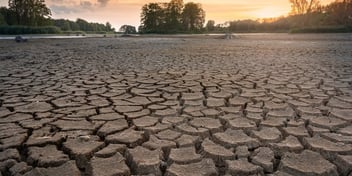Unsustainable urbanisation a key risk for water management
Unsustainable urbanisation is ratcheting up the risks for water management and more care must be taken to manage demand and protect urban water supplies, and the ecosystems that support them, said international thought leader Aromar Revi.
The Indian Institute for Human Settlements Director is a keynote speaker at the upcoming Ozwater’16 and will be presenting on the challenges and opportunities present in global urbanisation, and said one of the biggest tests posed by the growth of cities is the concentration of risk.
“Cities concentrate opportunities but they also concentrate risk. And water is a classic example of that,” Revi said.
“The larger the population and economic concentration you have, the higher the demand for water, and the further you have to go out or below the city to draw from the natural environments and ecosystems.
“There is a dark side to urbanisation that must be recognised if it is going to managed sustainably.
“We often forget it as we grow cities and design urban systems. Then we find, very suddenly, that all the gains made over 20 or 30 years, or maybe even 100 years, get wiped out by a significant event or a concentration of everyday risks that were just waiting to happen.”
Revi said the current management of water in urban environments, in most parts of the world, offers a strong example of the type of risk that the trend towards urbanisation throws up.
Further to the pressures that higher urban populations place on urban water management, Revi said this is only one small part of the issue, with the concentration of wealth in urban areas proving the higher risk.
“Some countries in the world, like Australia, have already gone to 85-90% levels of urbanisation,” Revi said.
“But this is only the population side of the story. Even though, on a population basis, the world became half urban in the mid-2000s, the world economy became half urban about two decades before that. Most people unfortunately didn’t notice that.
“The massive economic concentration in cities is a tremendous opportunity, driven by the ability of urban areas to use the opportunities of economies of scale. But there are clear limits to that, especially the concentration of risk, whether it is to economic output or employment, or the infrastructure that is required to provide for that.”
Revi said unthinking global urbanisation is also responsible for skewing values, which has placed a heavier pressure on water management than many would think.
“We value things that are produced in cities much more than things that are produced in rural areas or by ecosystems,” he said.
“Water is a most critical resource. We under-price it and we undervalue it. And, as a result, we don’t protect it well enough, whether it’s at the basin level or at the city level.”
In order to prepare cities for current climate variability and future climate change, Revi said it is important for countries to embrace the UNs Sustainable Development Goals (SDGs) and the Paris Climate accord – that Australia is a signatory to.
“The Sustainable Development Goals show us now that there is no country that is a truly developed country,” he said.
“If we look across the range of the 17 goals, every country is a developing country, on some count or the other. Australia is an advanced economy in some senses, but in actual fact, there are some areas of development that it struggles with.
“Apart from the dramatic risks that it is exposed to, especially because of climate change, we know that Australia has historically been a challenged continent in terms of water and it is going to become even more so with climate change and a shifting global economy.”
Revi said the attention paid to urban water management, through the increasing concentration of wealth and population in cities, gives us a glimpse into a country’s potential for future prosperity and sustainability.
“The forms of urbanisation that you have and that you practice are going to dramatically impact your ability to be able to adapt to what happens next,” he said.
“And what we are seeing today is just the beginning of the story. What we are experiencing in drought and floods across the world is just the overture. We haven’t even come into the first act of climate change.”
Revi will be presenting at the upcoming Ozwater’16 on Day 1, Tuesday 10 May, discussing global urbanisation and the challenges and opportunities present within the Australian context.
See the full program here.


